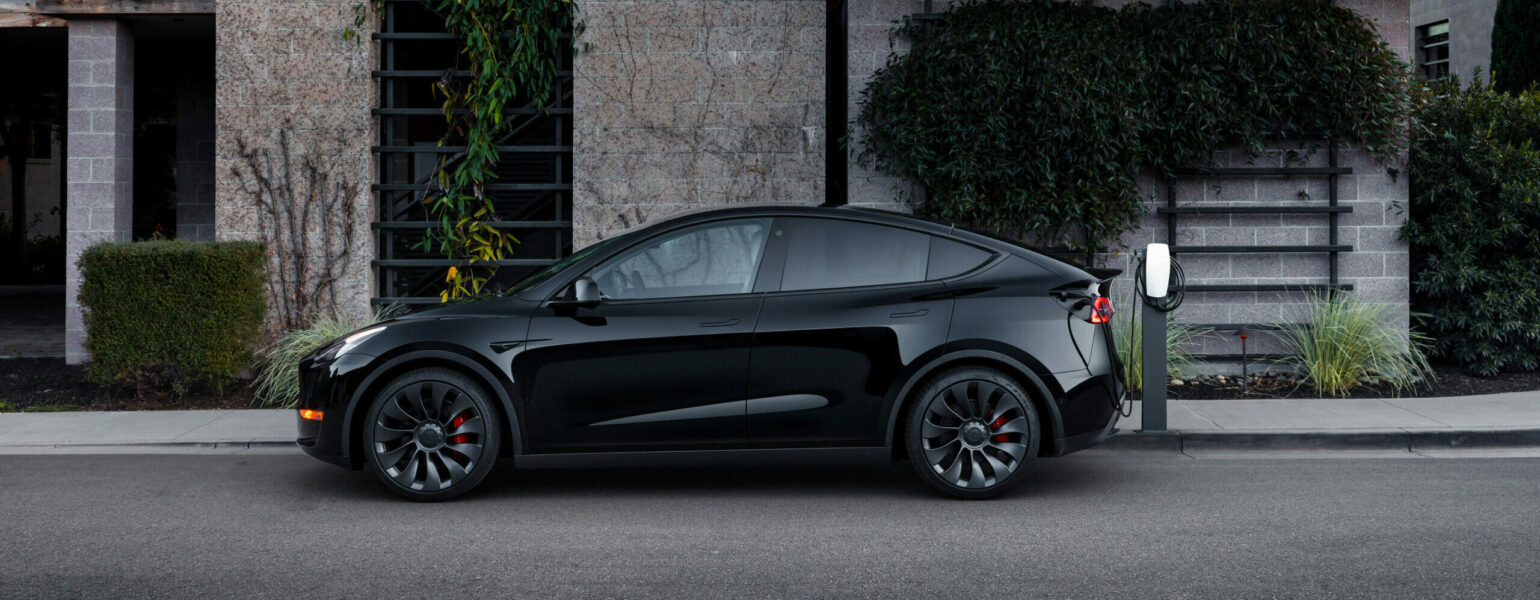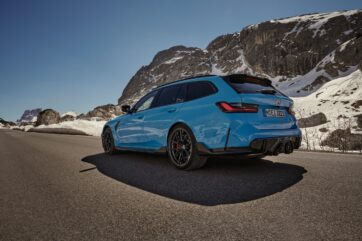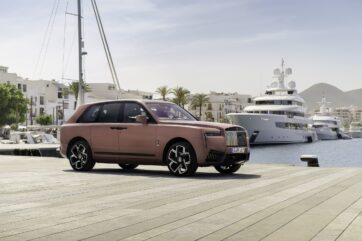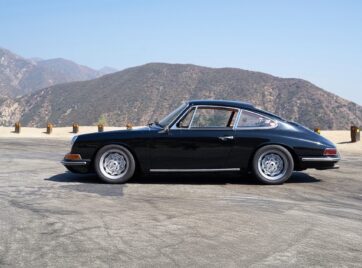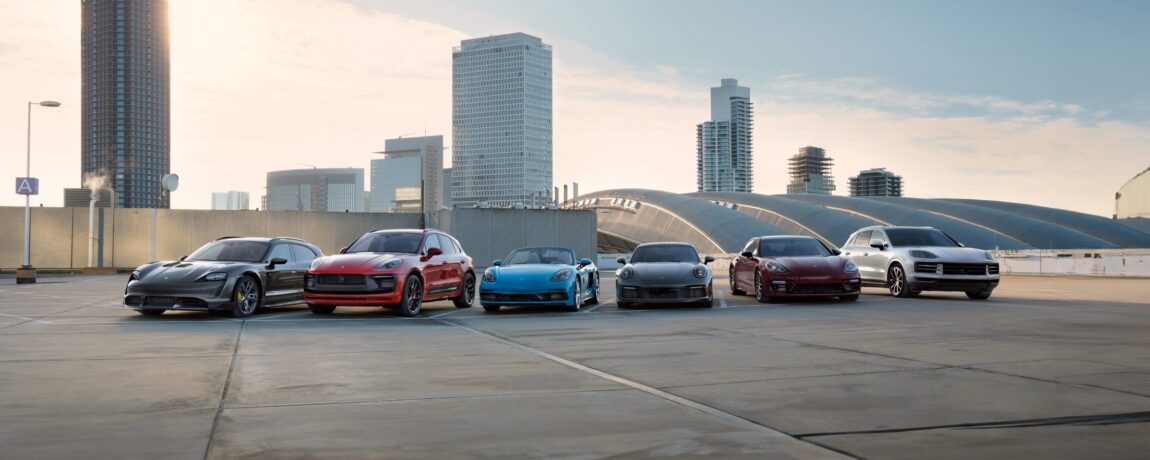
The Complete Porsche Buying Guide
At Oracle Car Finance we love a Porsche. From a brand new electric Macan or Taycan to a classic 356 or 930, and from a 918 Spyder hypercar to a rare racing 911 and everything in between, we are experts in providing funding packages for any Porsche model new or old. Not only that, but we are also official finance partners to Europe’s largest officially recognised Porsche car club, Porsche Club GB, which after 60 years has amassed over 22,000 members.
Over the years Porsche has historically been our most funded brand and returned to the top of our customers’ wish list in 2024. In fact, over the past 12 months (for the financial year 2024/25) we funded no fewer than 920 Porsche models. The 911 remains our most funded model for the 6th consecutive year, with more than 380 funded in 2024 alone, that’s more than 1 per day for the whole year.
Porsche have stated that their latest model range is their youngest yet, with nearly all of their models receiving a refresh or update over the past 12 months or so. With the recent announcement of the second generation of 992 Porsche 911, the new all-electric Macan and Taycan models, the facelifted Panamera and recent updates to the Cayenne, we thought it was the perfect time to produce a refreshed Porsche buying guide.
So if you want to know what separates a Turbo S from a GTS, a Targa from a Cabriolet, or an E-Hybrid with GT Package from a GT3 with Touring Package, keep reading for our complete Porsche buying guide to find out.
911
The Porsche 911 is one of the longest running and most popular sports cars there has ever been. After more than 60 years and 8 generations, its formula for precise handling and rear-engine configuration remains and is as popular now as it has ever been, as well as being one of the finest sports cars money can buy. Its ability to offer a range of specifications and trim levels to meet whatever you are looking for in a performance car, as well as its renowned every day usability, means that you can have your 911 any way you like. But with so many iterations to choose from, what does each model name and badge mean?
The current iteration is the 992 which has just had a mid-life refresh to create the 2nd generation, otherwise known as the 992 Gen II or the 992.2. The basic forms of your 911 are the Coupe, Targa and Cabriolet. The Coupe is the fixed roof version and comes in the most variations across the range, the Cabriolet is the one for those looking to enjoy the flexibility of a soft-top folding roof whenever the weather allows, whilst the Targa is a stylish combination of the two. Originally introduced as a safety-conscious alternative to a traditional fabric roof, the Targa features a metal folding roof that offers the best bits of a Coupe and Cabriolet, and the way it folds away is a symphony of engineering and theatrics.
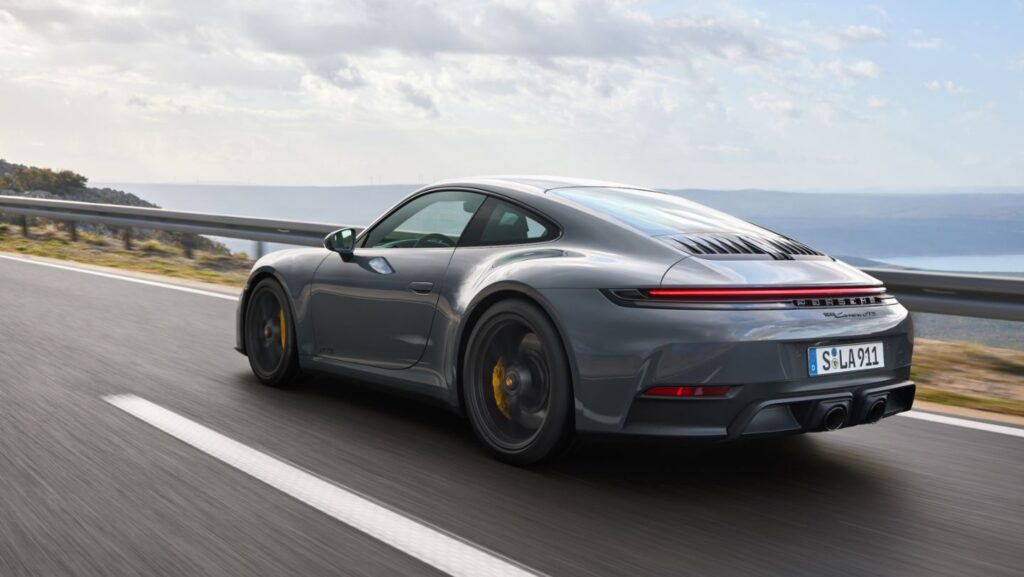
The 911 range starts with the Carrera, which in its newly released 992.2 specification starts at just over £100,000 and comes with 394PS from its turbocharged 3.0-litre engine. Next in the line up is the ‘driver’s choice’, the £115,400 Carrera T. It may have the same 394PS as the Carrera but the ability to specify the car in its lightest form and with the option of a manual gearbox, the Carrera T seems to have found its unique offering amongst the rest of the range. For more power and a mid-range point in the non-GT product line up there is the Carrera S. For a starting price of £120,500 you get a fairly substantial power increase to 480PS, a lower 0-62mph time of just 3.5 seconds and a slightly higher top speed of 191mph.
The biggest change on the second generation, and indeed on any generation, is that the GTS variation now comes with hybrid assistance for the first time in 911. Traditionally the more performance minded and well-equipped as standard GTS model is arguably the pick of the range, with the perfect blend of comfort, power and looks. Now with an electric motor assisting the turbocharger and one mounted within the gearbox, the 3.6-litre 6-cylinder engine produces a combined 541PS and can accelerate from 0-62mph in just 3.0 seconds with a top speed of 194mph. But as impressive as the performance figures are, whether the new hybrid set up will appeal to the die-hard Porsche faithful remains to be seen for now. The Carrera GTS can be specified in rear-wheel drive form starting at £137,900 or as a four-wheel drive Carrera 4 GTS starting at £144,400.
The flagship versions of the 911 start with the Turbo, yet to be announced in it 992.2 form. For now however, the current Turbo offers 580PS from its twin-turbocharged 3.8-litre 6-cylinder engine, and the Turbo S, with the same engine set up yet a power increase to generate 650PS, a 0-62mph sprint time of just 2.7 seconds and a top speed of 205mph. With prices for the former starting at £159,000 and the latter at just over £180,000, the Turbo and Turbo S are for many the most complete performance car for the road. It is expected that when the second generation of the Turbo and Turbo S are released they will feature the same hybrid set up as the GTS, so expect even more power and impressive performance statistics when that arrives.
For those looking for something a bit more track focused and sacrificing a little bit of comfort for handling and performance are the ‘GT’ iterations of 911. Starting with the £158,200 GT3, a reduction in weight, addition of aerodynamic aids for downforce and more racing set up means your 911 can really tackle any race track or B-road with increased vigour. With a naturally aspirated 4.0-litre 6-cylinder engine producing 510PS, the GT3 can accelerate from 0-62mph in 3.4 seconds and has a top speed of just under 200mph. But it is through the corners that the GT3 impresses most rather than the straight line power, and the high revving naturally aspirated engine is one of the best around. If you want your GT3 with a bit more subtlety and road focus there is also the optional Touring Package which deletes the rear spoiler yet still provides the thrilling performance of the GT3.
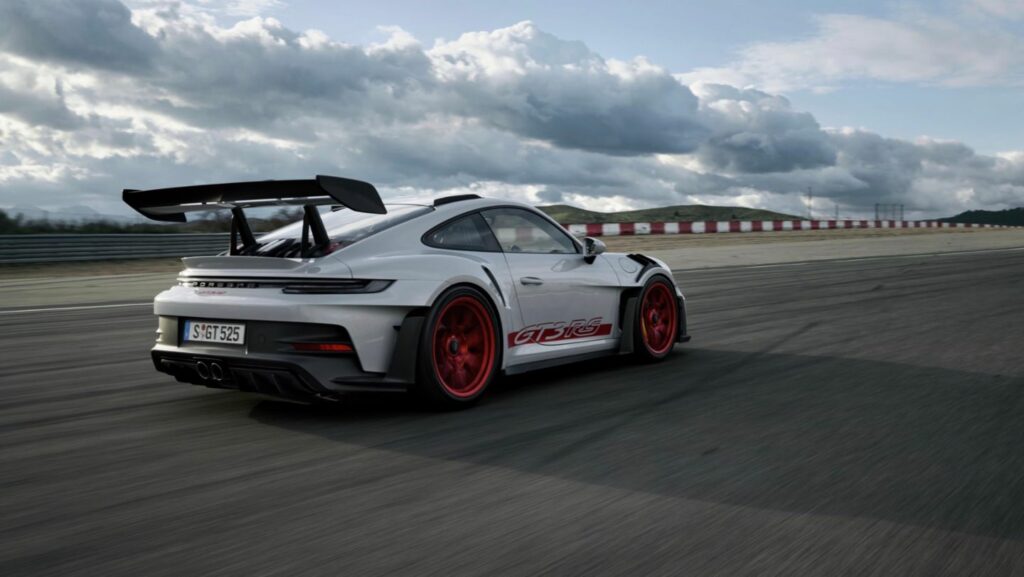
For those looking for the ultimate track toy that remarkably is road legal, there is the GT3 RS. Its no holds barred approach to achieving the ultimate in handling ability and racetrack performance means a significant amount of aerodynamic aids and management goes into the bodywork and trim to ensure it is one of the most impressive sports cars money can buy. For your starting price of £192,600 you get the most extreme looking version of 911 yet with an ever bigger fixed wing with active aero, more cut-outs and vents than ever before and less weight to improve everything from speed and handling to braking and cornering ability. Power is increased to 525PS from the naturally aspirated 4.0-litre engine and acceleration is improved so that 0-62mph is now just 3.4 seconds, yet thanks to the amount of downforce the car creates, top speed is now 184mph.
In the same way that the Touring Package allows you to enjoy the engineering of the GT3 in a more subtle and road focused package, the £231,600 911 S/T gives you the engine, weight savings and running gear from the GT3 RS in a refined and toned-down appearance. The result is the lightest 911 of the 992 generation, yet with the same 525PS output and the driving abilities that the GT3 RS achieves yet more adapted to the road and without the extreme bodywork. It also brings back a manual gearbox for those looking for the ultimate in driving experience.
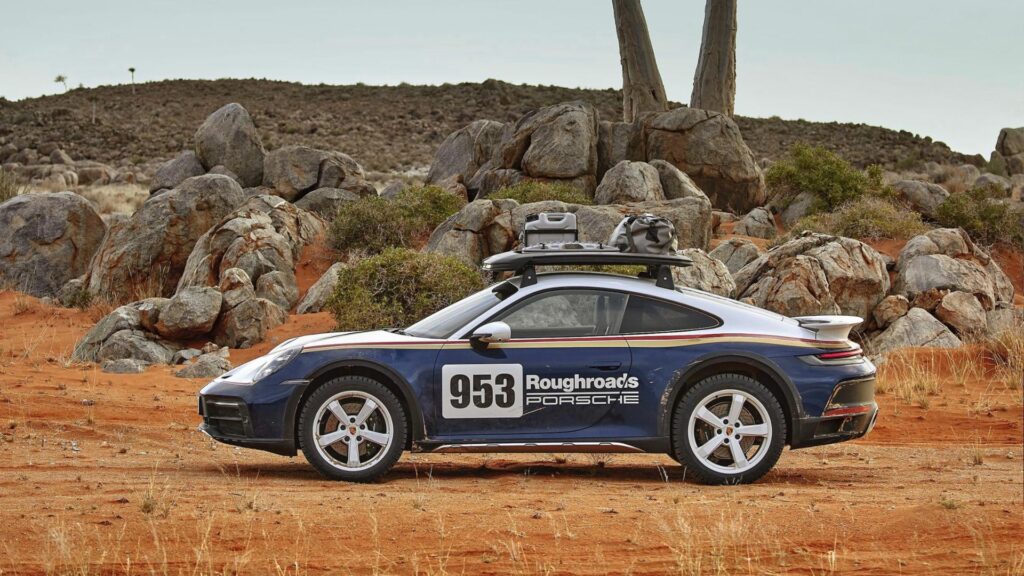
The final option in the extensive 911 range is perhaps the most extreme, and certainly most unexpected, yet. Taking inspiration from the historic rally cars of the 1980’s, the 911 Dakar is built to tackle any terrain and any conditions you can throw at it. Starting at £173,000, the Dakar features a 3.0-litre turbocharged engine that produces 480PS and can accelerate from 0-62mph in just 3.4 seconds. With tougher raised suspension, knobbly tyres, front and rear protective skid plates, exposed towing eyes and rugged sills, the 911 Dakar isn’t just for show. Yet perhaps the most interesting part is the ability to add a spade, water carrier, recovery boards to get you out of a particularly tricky situation and a roof rack with auxiliary headlights. Perhaps most examples will never actually go off road, but as a retro inspired all-terrain vehicle, it would be difficult to find anything cooler.
Macan
The Porsche Macan was supposed to be the first of the brand’s existing mainstream models to take the plunge and go all-electric for their latest iteration. Renowned as one of the best handling prestige compact SUV’s on the market, its move to electric only perhaps shocked many people when it was launched early in 2024. But then again, Porsche have proved with the Taycan that just because a car is all electric doesn’t mean it can’t handle and perform the way a Porsche should.
Rather than develop a combustion engine and BEV variant side by side, like Audi, Mercedes and BMW have with many of their models, the new Macan was conceived as purely electric only, with the petrol variant intending to remain on sale in Europe until the end of Spring 2024 and in the UK for a little bit longer, yet in its previous styling and trim levels. But so far the petrol Macan remains configurable on the Porsche UK website and can be ordered at your local Porsche Centre. There have been industry rumours that Porsche are considering developing a new Macan to run alongside the all-electric version, with a similar appearance yet developed on an all-new platform. No word yet as to whether that is their intentions but it is a sign of the lack of confidence in the electric vehicle market for now.
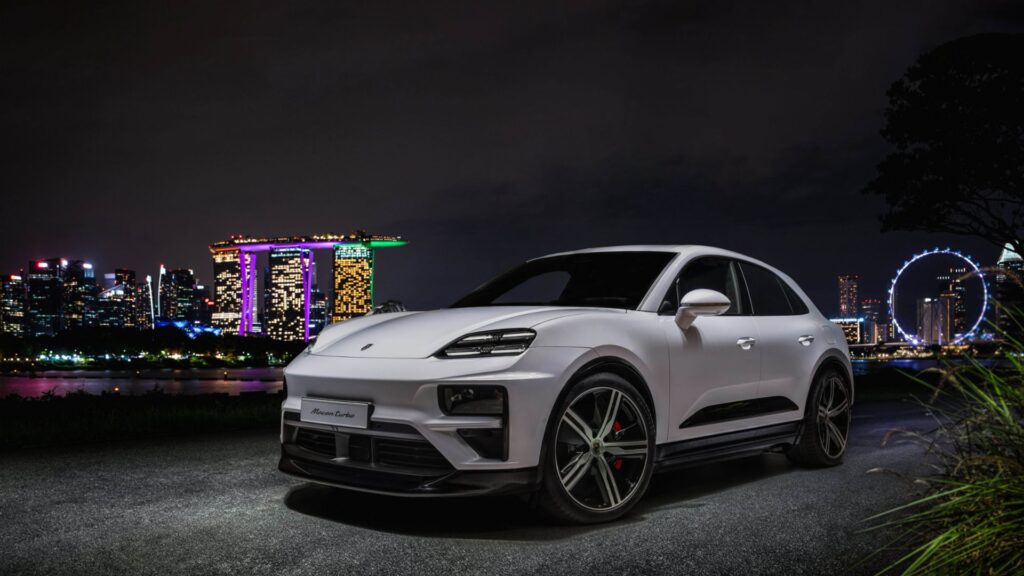
So for the time being in this country you can get your combustion engine Macan as a base version simply called ‘Macan’, the Macan T, the Macan S and finally the Macan GTS. The base car starts at £56,000 and comes with 265PS from a 2.0-litre 4-cylinder turbocharged engine, the same can be found in the £61,000 ‘T’ albeit with a bit more specification as standard. For the ‘S’ not only does the price and specification improve for your £63,000 but the engine also gets bigger and is now a 3-litre 6-cylinder engine producing 380PS.
The flagship petrol GTS variant gets the same engine yet with more power at 440PS and is capable of accelerating from 0-62mph in 4.5 seconds and onwards to a top speed of 169mph. As well as this it comes with a more extensive list of standard equipment to include RS Spyder design satin black wheels, GTS Sports seats, Porsche Surface Coated Brakes (PSCB), a switchable sports exhausts system, Sport Chrono package, GTS specific Sport air suspension and much more. The cost for all of this added specification is a starting price of £75,000.
With the all-new all-electric version there are currently 4 options available, the Macan Electric, Macan 4 Electric, Macan 4S Electric and the Macan Turbo Electric. The base Macan Electric starts at £68,500 and comes with 360PS, a 0-62mph time of 5.7 seconds and an impressive possible range of 399 miles.
The Macan 4 Electric features the equivalent 408PS from the twin motor set up and offers up to 380 miles from the 100kWh battery, with 0-62mph covered in just 5.2 seconds and with a starting price of £71,200. The newly introduced 4S Electric starts at £76,900 and offers more power in the form of 516PS, a similar range of 378 miles but with an improved 0-62mph sprint time of 4.1 seconds.
The Macan Turbo Electric is the current flagship of the range starting at a not inconsiderable £96,900. The Turbo produces 639PS from its 2 motors, with a claimed 367-mile maximum range. The more powerful Turbo is capable of accelerating from 0-62mph in just 3.3 seconds, which despite its much greater weight and SUV body, is as fast as a 911 GT3.
All the Macan Electric models offer an all-new design with a focus on driving dynamics and include the very latest technology to offer 800V charging architecture for high-speed charging. As with any Porsche product, the levels of customisation and specification adjustments are seemingly endless, yet this also means your £95,000 Macan Turbo can easily become a £150,000 vehicle if you get ambitious.
Taycan
Despite being on sale for almost 5 years before the recent facelifted version was announced, there still aren’t many electric saloons that come close to the Tacyan for driving feel and desirability. In order to keep on top of their game and push the yardstick even further away for its competitors, the recent announcement of updates to the model means that the Taycan is even better than it was before. Thanks to the advancements in technology in that time, the 2024 Taycan received considerable upgrades to its mechanicals and running gear to ensure it is right up to date. The looks may have been sharpened up a little to keep them fresh but it is the battery capability, electric motor efficiency and overall performance that sees the biggest upgrades.
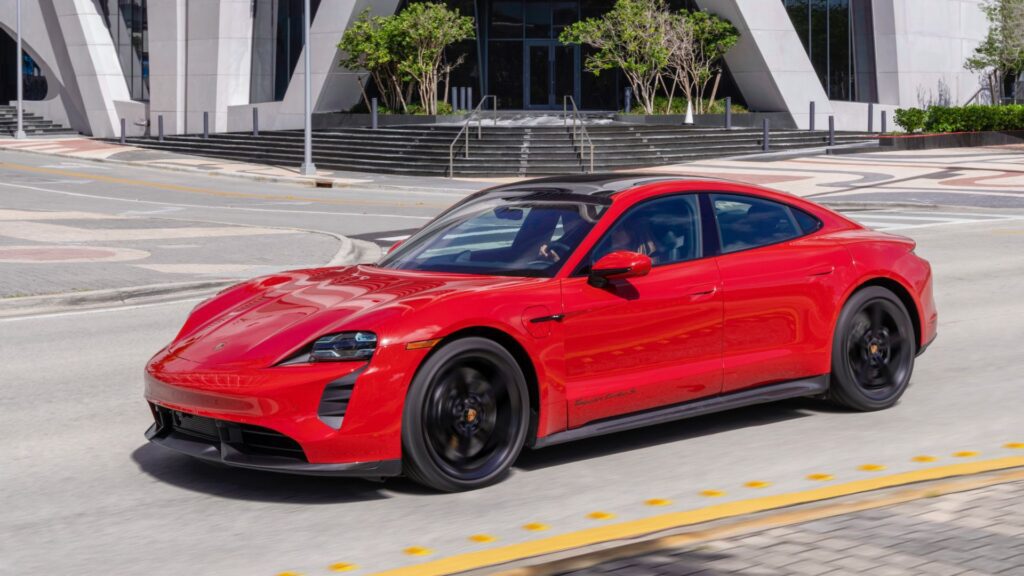
Following a similar pattern familiar to the majority of the Porsche fans, the Taycan line up starts with the base Taycan and includes the 4S, GTS, the Turbo, the Turbo S and the flagship Turbo GT. The entry-level model starts at £88,200 with 435PS on offer and a 0-62mph time of just under 5 seconds, the 4S is £8,000 more and comes with 598PS and a more spritely 0-62mph time of 3.7 seconds, with the GTS offering 700PS and a 0-62mph time of just 3.3 seconds.
Then the Taycan power figures and pricing take some considerable increases, with the £135,200 Turbo producing 884PS and a 0-62mph sprint time of just 2.7 seconds, and the Turbo S offering 952PS and a 0-62mph sprint time of 2.4 seconds for a price starting at £162,200. Luckily if even that isn’t enough power and speed for you, the Taycan range gets even more extreme.
As if the Turbo S’s figures weren’t impressive enough, there is the Turbo GT. Created as an attempt to knock the Tesla Model S Plaid off its perch and chase Nürburgring lap times, the Taycan Turbo GT can be yours for £189,200 and produces an incredible 1034PS from a combined 730kW electric motor output, giving the car a 0-62mph time of just 2.3 seconds (or 2.2 seconds with the reduced weight Weissach Pack selected). It also offers a possible 345 miles of range which for such a powerful motor and performance set up is actually quite impressive. Though that will understandably drop quite significantly when you exploit its huge power reserves.
For those looking for a bit more practicality, and arguably an even more stylish silhouette and profile, the Taycan range (aside from the Turbo GT) are also offered as a shooting brake estate/hatchback body style, the Sport Turismo. Offering more space to the interior yet retaining the sporting credentials of the saloon, the Sport Turismo offers the best of both worlds for currently a unique offering amongst the electric car marketplace. Sport Turismo models are around £1,000 more than their saloon equivalents.
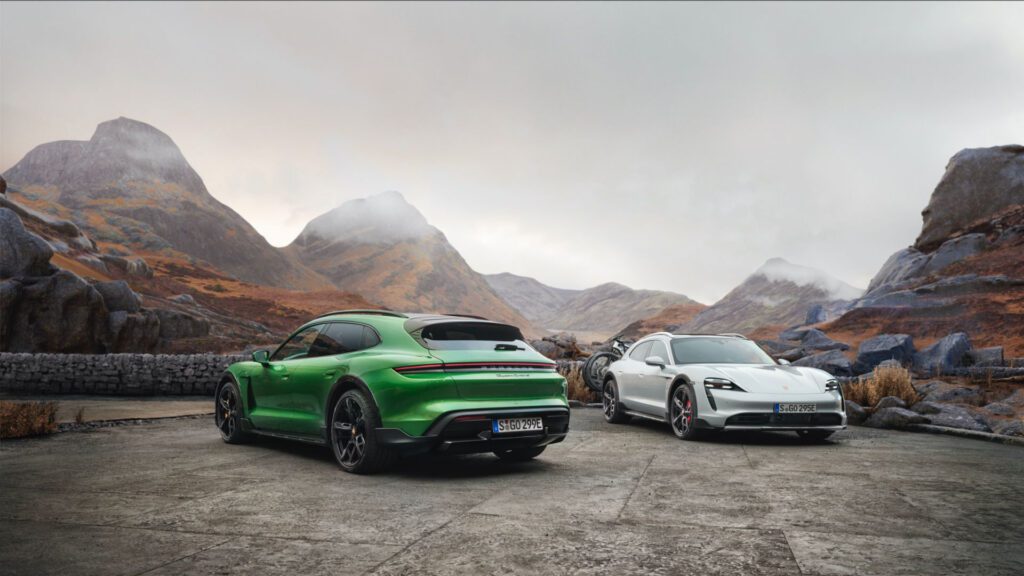
Then for those looking to be able to conquer rough terrain and looking for a more rugged appearance to their estate version, there is the Cross Turismo. Designed for those with an ‘active lifestyle’, the Cross Turismo takes the space and practicality of the Sport Turismo, the dynamics and performance of the saloon and creates and even more capable and impressive electric vehicle. With more durable bodywork, raised suspension and additional off-road driving modes, the Cross Turismo was built to be the ultimate electric sporting vehicle for any situation. Cross Turismo models start at a few thousand pounds more than their equivalent Sport Turismo versions.
Panamera
With the introduction of the Taycan, many thought that the Panamera’s days as a luxury saloon were numbered. However, Porsche are adamant that the two can coexist and as a result have recently revised the model for 2024. Despite the model returning to a saloon only body style, removing the option for a Panamera Sport Turismo estate, the petrol and hybrid variants are some of the most impressive models in its sector.
The entry level model, predictably merely called the ‘Panamera’, starts at £89,400 and for that you get a 353PS 2.9-litre 6-cylinder petrol engine meaning the car is capable of 0-62mph in 5.3 seconds and has a top speed of 169mph. The Panamera 4 adds four-wheel drive for a £3,000 premium and features the same engine yet reduces the 0-62mph sprint time by 0.3 seconds.
For around £7,000 there is the option of the Panamera 4 E-Hybrid which increases the power output to 470PS, reduces the 0-62mph time to 4.1 seconds and increases the top speed to over 170mph. More impressively though that despite the car being more powerful and faster, it also means that the claimed fuel economy rises from 27.7mpg for the petrol variant to a claimed maximum of 91mpg.
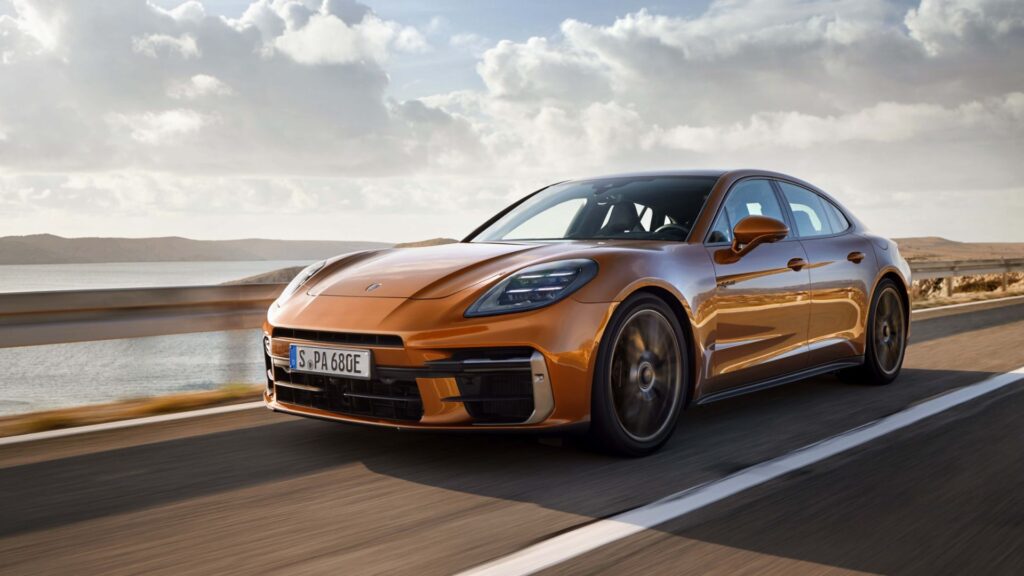
Next in the range is the Panamera 4S which is offered as an E-Hybrid variant only. For a starting price of £110,200 the combination of the same 2.9-litre 6-cylinder engine and an uprated electric motor means a combined power output of 544PS and a quicker 0-62mph time of just 3.7 seconds, as well as a 180mph top speed. Maximum claimed economy figures drop slightly but still remain very impressive at a possible 86mpg. The ever popular GTS iteration comes next in price but unusually not in power or pace. For a starting price of £131,700, the Panamera GTS offers 500PS and a 0-62mph time of 3.8 seconds from a non-hybrid assisted 4.0-litre V8 engine.
At the top of the Panamera range, sits the Turbo E-Hybrid which for a starting price of £151,500 provides a combined 680PS from its electric motor and 4.0-litre V8 engine. This means that despite a 0-62mph time of just 3.2 seconds and a top speed of just under 200mph, the Turbo E-Hybrid can still achieve a maximum 80mpg. Then the Turbo S E-Hybrid with 782PS, a 0-62mph time of just 2.9 seconds and a starting price of £175,100, as well as a capability of up to 70mpg.
As with the rest of the Porsche range, the specification choices remain seemingly endless with an impressive array of customisation options available to the buyer. This means your Panamera can be tailored to provide the maximum sporty and dynamic drive you require, the ultimate in technology and luxury for the upmost in comfort, or the best of both worlds to be somewhere in between. With so much to choose from however, if you get a bit selection happy with the options list, your Turbo S E-Hybrid can be nudging £200,000 or beyond if you’re not too careful.
718
The entry-level route into a Porsche model but by no means an inferior product, the 718 range is for many the best driving sprots cars money can buy. Available as the 718 Boxster for those looking for the option of roof down open top motoring when the weather allows, or as the 718 Cayman for fixed roof Coupe motoring, the range has something for everyone. There are rumours that the next generation of 718 sports cars will be electric powered so this may be the last chance to get those combustion engine sports car thrills before the only choice is the 911.
Starting with the base Cayman or Boxster, a £53,800 starting price for the former and £2,000 premium for the latter, gives you a very usable 300PS from a 2-litre turbocharged 4-cylinder engine. As well as offering dynamic capabilities to which all other rivals at this price point are compared to, both models achieve a 0-62mph acceleration time of 4.9 seconds and have a top speed of 171mph. For those looking for something to turn a few more heads and make a style statement, for an additional £5,000 there are the ‘Style Edition’ models with bolder colour choices, contrasting graphics and extra features included as standard.
If you want your Cayman or Boxster to come with a bit more power, the ‘S’ models come with 350PS from a 2.5-litre turbocharged 4-cylinder engine, are half a second quicker to 62mph and have an increased top speed by 7mph. For your extra £10,000 as well as getting more power and speed, your 718 comes with more additional specification as standard and a more thrilling drive for your money.
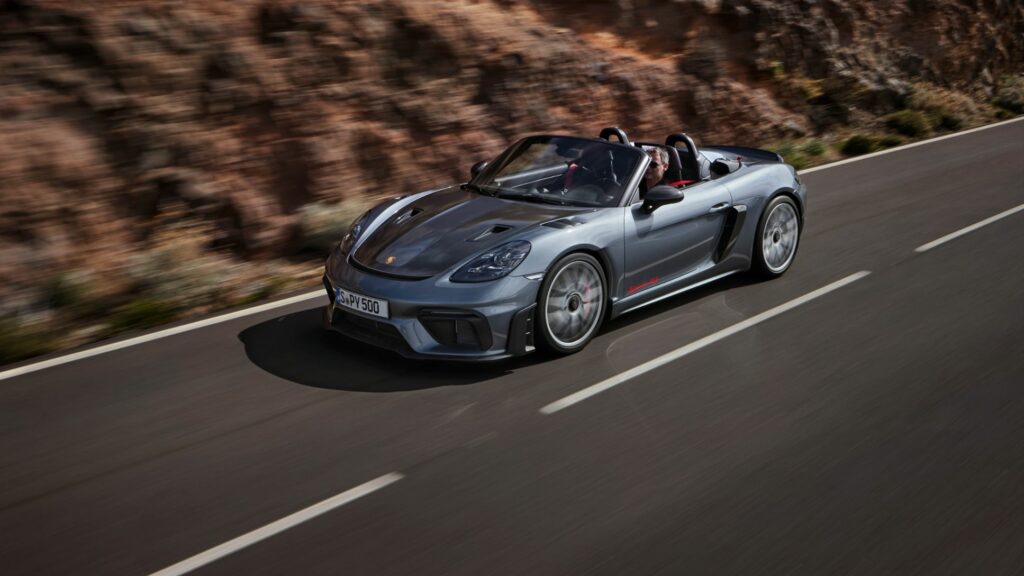
Next in the range is what for many is the ‘sweet-spot’ of the line up, the 718 Cayman or Boxster GTS. For £75,300 for the coupe and £77,300 for the convertible version, the GTS is equipped with a naturally aspirated 4.0-litre flat-six, producing 400PS. With 0-62mph possible in 4.0 seconds and a top speed of just under 180mph, the GTS is seen as the ‘driver’s choice’ thanks to that free revving non-turbocharged engine. Being the GTS it also comes with a number of options as standard, including 20″ Satin Black Sport wheels, heated Sports Seats Plus, Porsche Active Suspension Management (PASM), Porsche Torque Vectoring (PTV), Sports exhaust system, Sport Chrono package, plenty of driver aids, an uprated sound system and much more.
If neither of those options are quite driver focused enough for you, there are the flagship ‘GT’ models to satisfy your hunger. The ‘standard’ GT4 is no longer an option with the 718 Cayman so now you have the choice of the 718 Cayman GT4 RS and 718 Spyder RS. Porsche have created the ultimate track focused 718 products for the road, or the race track, depending on how you want to enjoy them with both cars. Starting at £125,500 for both the fixed roof coupe Cayman and the removable roof Spyder, Porsche have used their extensive motorsport engineering knowledge to show what the 718 models are really capable of.
Equipped with an uprated version of the 4.0-litre 6-cylinder engine, the very same one found in the 911 GT3, the cars come with 500PS of naturally aspirated power in a small lightweight package to provide maximum driver enjoyment. 0-62mph takes just 3.4 seconds and the top speed is just under 200mph (191mph for the Spyder) with increased downforce, airflow management and reduced weight to ensure the performance figures only tell half the story. The GT4 RS and Spyder RS are versions that Porsche said would ‘never be made’ due to them encroaching on the performance of the 911. Perhaps they saw them as a final swansong for the combustion engine, but whatever it was we can be thankful that the ultimate versions of both models were created in the first place.
Cayenne
When the Cayenne model was introduced in 2002 it not only set new standards for the way an SUV could perform and handle, but led the way for other luxury car makers to join the lucrative SUV market. Since then it has continued to be one of the most impressive and popular vehicles in its class and has recently been given a through overhaul by Porsche to keep it at the very top.
Starting at £77,500 for the entry-level model and rising to a base price of £166,100 for the flagship, Porsche have ensured that the range fits in with the rest of their cars by offering something for everyone and in line with their other vehicle line ups. Their recent update has ensured that the technology on offer is some of the very best whilst neater styling manages to keep the model looking its best for many years to come.
All Cayenne models are available as a ‘Cayenne’ or a ‘Cayenne Coupe’ body style, with the more athletic sloping rear roofline of the Coupe offering a more sporty profile to the model. Starting with the base model, again simply called Cayenne, a 3.0-litre 6-cylinder petrol engine produces 353PS, enough for a very respectable 0-62mph time of just 6.0 seconds and a top speed of 154mph. Despite being the base model, for your £77,500 it does come with some reasonable levels of equipment such as full self-steering Park Assist, Surround View parking cameras, keyless entry system and electric comfort seats.
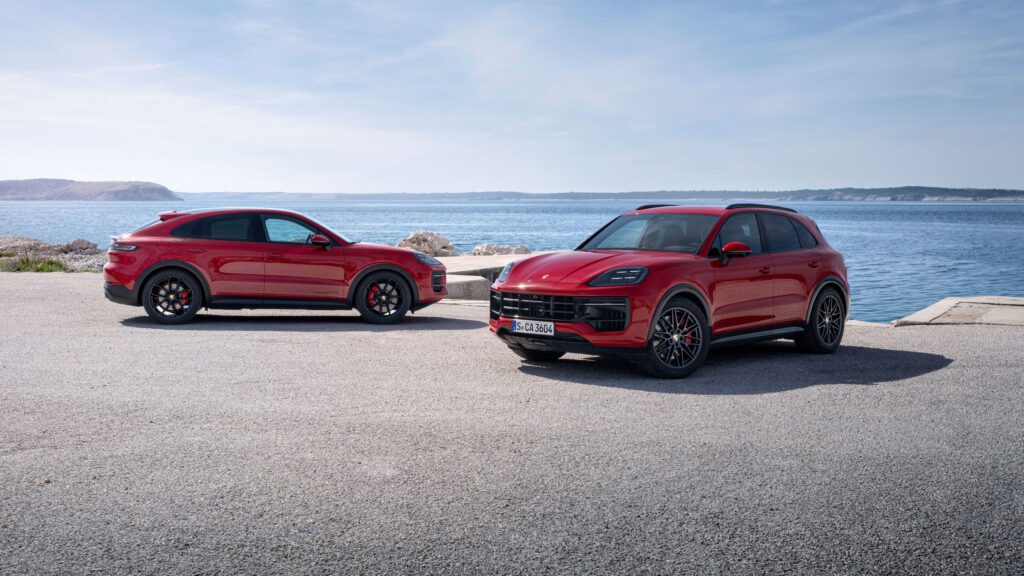
Next in the range is the Cayenne E-Hybrid, which with similar levels of equipment, offers better performance and improved economy for a starting price of £86,300. The combined power output of 470PS equates to an improved 0-62mph time of just under 5 seconds, whilst the top speed has increased marginally to 158mph. Economy figures climb from 26mpg for the purely combustion engine model to a claimed 188mpg for the E-Hybrid, as well as a possible all-electric range of 55 miles at up to 84mph.For those looking for more power but without electric assistance, the £93,000 Cayenne S comes with a 4.0-litre V8 engine that produces 474PS and offers a 0-62mph time of 5.0 seconds and a top speed of 170mph. This is then joined by the Cayenne S E-Hybrid, which starting at £95,200 features a combined power output of 519PS from a 3.0-litre 6-cylinder engine and a 176PS electric motor, 0-62mph becomes possible in 4.7 seconds and the top speed is 163mph.
For a £107,600 starting point, the Cayenne GTS offers 500PS from a 4.0-litre twin-turbocharged V8 engine, meaning a 0-62mph time of 4.7 seconds and a top speed of 171mph. Being the GTS model, specification and features as standard are greatly improved, with uprated 21” RS Design wheels, heated Sports seats, SportDesign body styling, adaptive air suspension, Sports exhaust system and much more included as standard.
The flagship of the range is the Turbo E-Hybrid at £140,600 and offers sports car performance and physics defying handling in a comfortable luxurious SUV body style. With a combined 739PS coming from a 4.0-litre twin-turbocharged V8 engine and a 176PS electric motor, the Turbo E-Hybrid can accelerate from 0-62mph in just 3.7 seconds and has a top speed of 183mph. Not only that but despite its electrifying speed, it can also travel up to 50 miles on electric power alone and at speeds of up to 84mph.
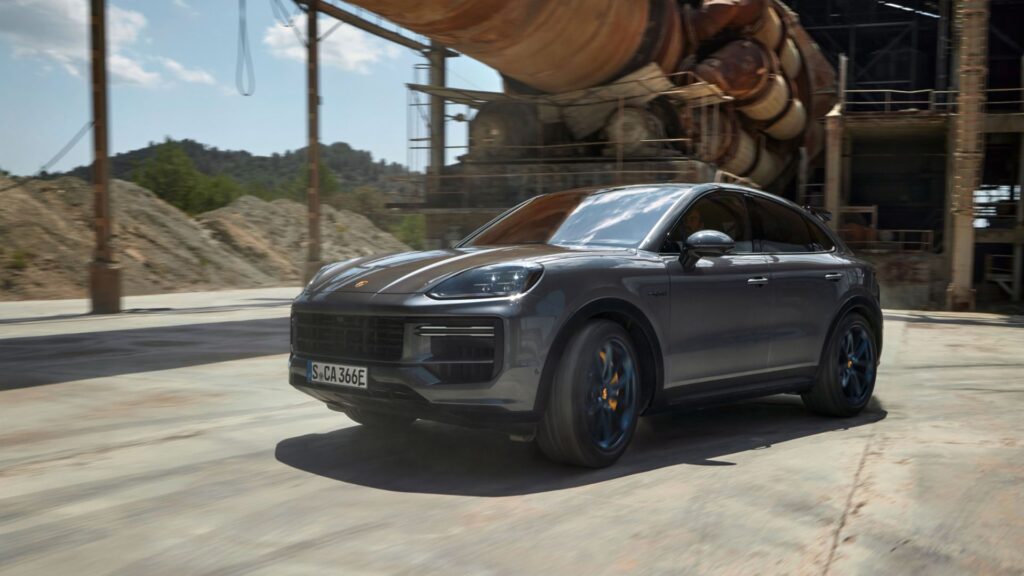
For the Cayenne Coupe, the Turbo E-Hybrid is also available with the GT Package. For a £26,000 premium the model is more driver and performance focused than ever, with carbon fibre additions, unique design lightweight wheels, sportier interior trim and the maximum focus on extracting the most the Cayenne can offer. As a result, the 0-62mph time is reduced by 0.1 seconds and the top speed is raised to 190mph, but with weight saving techniques and things like carbon ceramic brakes as standard, the performance gains are much more than just straight line speed.
Porsche Car Finance
If you are looking at purchasing your very own Porsche model, whether brand new, pre-owned or a classic car, our expert team have over 19 years’ experience in sourcing tailored car finance products for Porsche models. Not only that but as official finance partners to Porsche Club GB you can trust that whatever Porsche you are looking to fund, our Account Managers can offer the most suitable finance package for you and your circumstances. Whatever model you are looking for, you can get in touch with us either by calling 0800 012 6666 or find out more by clicking: Porsche Car Finance.
With over 2,700 5-Star Trustpilot reviews, and having funded over £2 billion of vehicles and counting, you too can find out why thousands of people trust us time and time again to find a smarter, tailored funding solution when looking for your next dream car.
Make sure you follow us on Instagram, LinkedIn and Facebook to keep up to date with what’s happening in the market and to see some stunning photos and videos of the amazing cars we fund.
